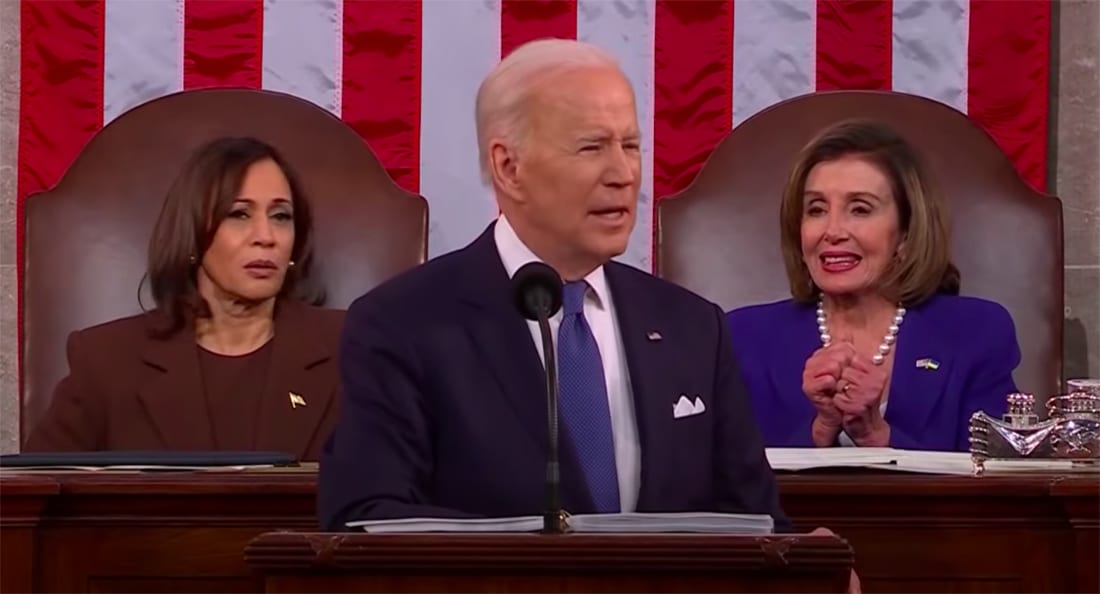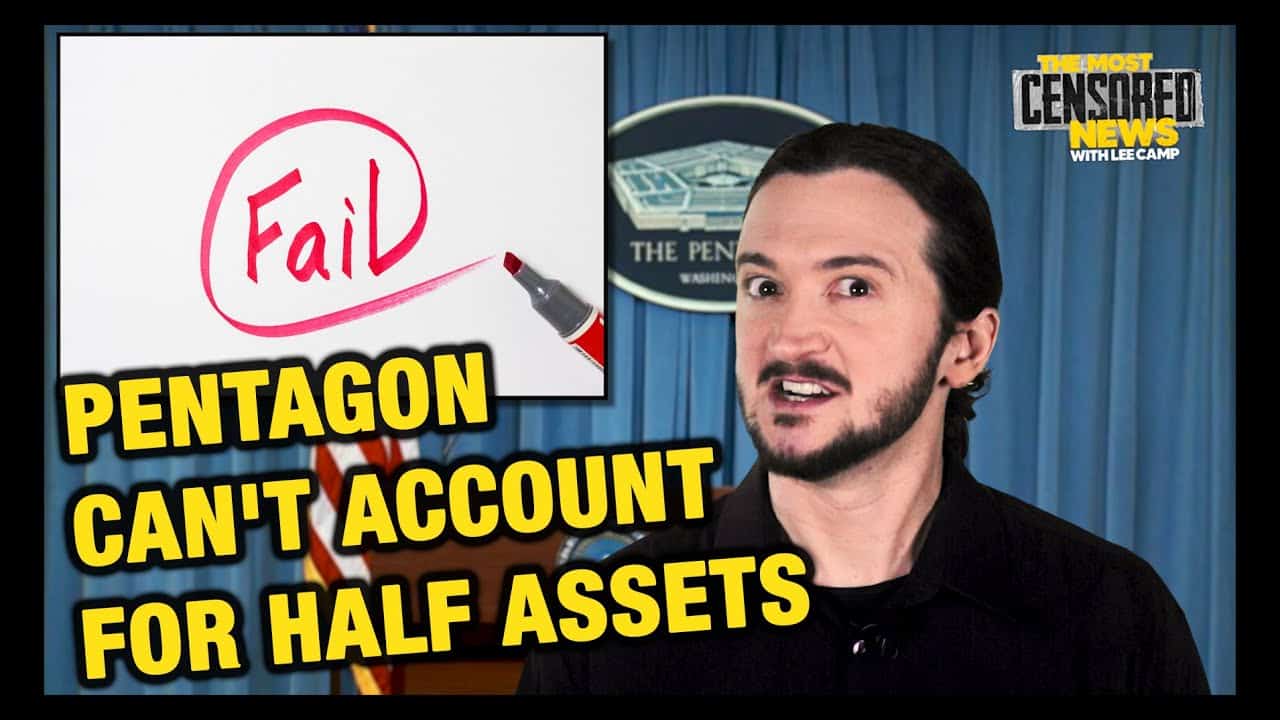
William Astore, You Have No Say About Your Military
[Note for TomDispatch Readers: It’s that summer moment when I take some breaks and post a few “best of” TomDispatch pieces, though good as retired Air Force lieutenant colonel and historian Bill Astore’s piece on the “Pentagon church militant” was back in 2010, I have an urge to replace “best of TomDispatch” with “worst of TomDispatch.” That’s because, 14 years after I first posted his analysis, the U.S. “defense” budget has only gone further through the roof heading toward the trillion-dollar mark. And in those same years, that military, funded like no other on earth and not having won a war of significance since World War II, lost a couple more in Afghanistan and Iraq, as well as the Global War on Terror.
Oh, and by the way, I’m still hoping to keep TomDispatch afloat at least to my 81st birthday next summer, but to do so, I really need more help from you TD readers. For all these years, you’ve made the difference by contributing whatever you could to this site. So, in this ever-hotter August, let me urge you to think about doing that once again (or once!). If you can afford to, visit our donation page and do whatever you can to keep TD going. You truly mean the world to me.
Oh, and I asked Bill Astore if he’d write a brief new introduction to this remarkable old piece of his and it’s just below. Tom
[Bill Astore, 2024:] If I’ve learned anything in the 14 years since I wrote this article, it’s that security doesn’t sell nearly as well as insecurity does. Militarily speaking, America should be reasonably secure with two vast oceans and a long, peaceful northern border with Canada. Admittedly, the southern border remains contentious, but that’s in large part due to government bickering and grandstanding. The United States hasn’t been invaded by a foreign power since the War of 1812. (Native Americans, of course, had a far different experience.) No Nazis goose-stepped through New York City in 1940. No Japanese A-bombed San Francisco in 1945. No Vietnamese slaughtered American civilians in a small town on the West Coast in 1968. Why, then, is this country always so on edge?
Because the Pentagon church-militant excels at making us feel insecure, not only bodily but in our minds while assuring us that we’re unqualified to know about “top secret” matters of national security. They tell us to fear, and fear again — Russia, China, Iran, North Korea, and so many other “threats,” past, present, and future. It’s anything but a gift, though it certainly is a grift that makes us so deferential to authority and willing to pay through the nose (to the tune of well more than $1 trillion annually) for “national security.”
Let me just say it (as I did back in 2010): Stop getting fleeced, America. Security is not something you buy at exorbitant prices with ever more expensive weaponry and wars. And having hit $35 trillion and counting, our national credit card is maxed out, not that the U.S. military has noticed or cares.]
When was the last time you saw the headline, “Cost of [Pentagon-weapons-system-of-your-choice] halved”? Probably never. Still, the thought came to mind when this recent Associated Press headline caught my eye: “Pentagon: F-35 fighter jet cost doubles.”
Here’s the story behind it: Since 2001, when an F-35 Joint Strike Fighter was expected to cost an already hefty $50 million, the plane’s cost has soared into the stratosphere (despite the fact that the aircraft itself has barely left the ground). The estimated cost today is $113 million per plane. Yes, that’s per plane. This supposed future workhorse of the U.S. military is now priced like the planet’s most precious gem. It’s also 2 ½ years behind schedule. Keep in mind that the Marines, the Air Force, and the Navy are planning to buy a combined 2,450 of them for what’s now an eye-popping $323 billion. And if you think the costs are likely to stay in the $113 million range, given the history of Pentagon cost overruns, then I have a nice little national security bridge to Brooklyn I think the U.S. public might love.
In other words, if all goes well from here (an unlikely possibility), a single future weapons system is now estimated to cost the American taxpayer almost one-third of what the Obama administration’s health-care plan is expected to cost over a decade. You could even think of the Pentagon’s weapons procurement process as the health-care system of the national security state. Its costs just never stop rising. In fact, the Government Accountability Office pegs major weapons systems cost overruns since 2001 at $295 billion, another near third of the cost of the health-care bill supposedly coming to a vote this week.
And here’s what’s remarkable: You barely hear about such overruns. They’re almost never front-page headline news, even though the money’s being taken from not-so-deep taxpayer pockets. And when truly terrible news, as with the F-35, comes in, all that happens in Washington is that a few politicians mutter a little. John McCain, for example, offered this less than stirring quote on the F-35: “The taxpayers are a little tired of this. I can’t say that I can blame them”; and an irritated Senator Carl Levin, chairman of the Senate Armed Services Committee, said: “We cannot sacrifice other important acquisitions in the DOD [Department of Defense] investment portfolio to pay for this capability.” (Bet you didn’t even know that future weapons were part of a Pentagon “investment portfolio.”) In the case of Secretary of Defense Robert Gates, he’s planning to hold back $614 million in “performance bonuses” from the plane’s lead contractor Lockheed Martin. (And you thought only bankers and financial wheeler-dealers got performance bonuses!) But it’s striking that there are no tea party movements out in the streets of America demanding our money back or claiming that we’re going to be broken by this.
Here’s an American reality: the Pentagon is our true welfare state, the weapons makers our real “welfare queens,” and we never stop shoveling money their way. Somebody should raise a few tough questions about the Pentagonization of our country and its finances. Fortunately, TomDispatch has retired Lt. Col. William Astore, historian and regular contributor to this site, to take on the task. Tom
The Pentagon Church Militant and Us
The Top Five Questions We Should Ask the Pentagon
by
When it comes to our nation’s military affairs, ignorance is not bliss. What’s remarkable then, given the permanent state of war in which we find ourselves, is how many Americans seem content not to know.
Citizens of courage will surely choose the path of challenge.
There are many reasons for this state of affairs. Our civilian leaders encourage us to be deferential toward our latest commander/savior, whether Tommy Franks in 2003, David Petraeus in 2007, or Stanley McChrystal in 2010. Our media employs retired officers, most of them multi-starred generals, in a search for expertise that ends in an unconditional surrender to military agendas. A cloud of secrecy and “black budgets” combine to obscure military matters, ranging from global strategy to war goals to weapons procurement. The taxpayer, forced to pony up about one trillion dollars yearly to fund our military, national security infrastructure, and wars, is sent a simple message: stay clear and leave it to the experts in uniform.
The powerlessness of ordinary Americans in military matters is no accident. Recall the one-word reply — “So?” — Dick Cheney offered in March 2008, when asked to comment on popular opposition to the war in Iraq. The former vice president was certainly far blunter than Washington usually is, and for that we may owe him a measure of thanks. By highlighting the arrogant dismissiveness of Washington’s warrior-elite when it comes to American public opinion, he revealed more than he intended.
Time for Vatican II at the Pentagon
If military power is the church at which we worship and the Pentagon is our American Vatican, then it is desperately in need of the equivalent of Vatican II which, in the early 1960s, opened the Catholic Church to greater participation by the laity, a vitally important change in ethos. Instead of continuing to pray at the altar of their particular services, we need our Pentagon “priests” to turn to the laity — us — and seek our input and sanction. Instead of preaching in unintelligible Pentagonese, with its indecipherable acronyms, secret doctrines, and spidery codenames, it’s long past time for them to talk to us in a language that reasonably informed adults can understand.
Think about this: last year, our country held innumerable public hearings on health-care reform. Congress continues to fight about it. It’s constant news. There’s a debate alive in the land. All this for a program that, in ten years, will cost the American people as much as defense and homeland security cost in a single year.
Yet runaway defense budgets get passed each year without a single “town hall” meeting, next to no media coverage, and virtually no debate in Congress. Indeed, you’d think each Pentagon budget was an ex cathedra pronouncement, given the way Congress genuflects before them and Americans accept them without so much as a peep of protest.
Those “Crazy” Kiwis
Imagine, for a moment, if Pentagon officials, supposedly toiling in our name, actually condescended to ask us for our thoughts. What do we think about global military strategy, garrisoning the planet, the ways in which our forces are structured, and how, where, and for what they should be deployed abroad?
Sound crazy? Here in the U.S.A. it most distinctly does, but not to the citizens of New Zealand. A Kiwi friend of mine recently sent me “Defence Review 2009,” a publication of New Zealand’s Ministry of Defence (MoD). And catch this: it includes a survey soliciting the advice of ordinary New Zealanders with respect to military affairs. It actually asks for the counsel of civilians on a “top ten” list of questions whose topics are remarkably comprehensive, including what the priorities of the country’s Defence Force should be, both now and in the future. Citizens can even present their views on military matters at a public hearing attended by MoD representatives, all in the name of public consultation. And the Defence Minister responds to the people in clear English sans the cobwebs of jargon that typically entangle our military pronouncements.
In case you haven’t noticed, here in the U.S.A., requests from the Pentagon for citizen feedback aren’t flooding our email boxes. So I thought — since no one in that five-sided fortress on the Potomac has asked a thing of me — the least I could do was ask a few questions on my own. Here, then, is my own top-five list of questions that we, the American people, should ask the Pentagon, even if none of its officials want to hear from us. Maybe they’re a tad more pointed than those in the Kiwi survey, but that shouldn’t be surprising. After all, they’ve been a long time in coming.
1. Our military is supposed to be a means to an end: national security. Due to its immense size and colossal budget, has our military not become an end as well as means?
2. In World War II, Americans could explain “Why We Fight” in part because the government provided a clear and compelling rationale for war. Why are the goals of today’s wars so opaque to most Americans?
3. If our military provides us with our way of “nation building” abroad, won’t countries and peoples be more likely to copy our military ways and weaponry than our democratic teachings?
4. America is facing painful budgetary belt tightening. Why is the military immune?
5. Why does “support our troops” seemingly end when they leave the service, leading us to tolerate such inequities as an unemployment rate of 21% for young veterans?
Keep in mind that there are 10, 20, 30 more questions where those five came from — and our military badly needs to hear and respond to them all.
Every recruit is taught to stretch, to go the extra mile, to push until you can go no further. Our military needs some stretching and push-back: this time, from us. Unfortunately, most of us don’t think our opinions matter when it comes to our military — unless, that is, they consist solely of slavish adoration. The fact is most of us are detached from military affairs precisely because we know in our hearts that the Pentagon serves its own needs, that it may be interested in listening in on us, but certainly not in listening to us.
Challenge the Pentagon Church Militant
Kiwis have the reputation of being practical types with an admirable dash of humility, and I like to think that their Ministry of Defence solicits the views of its citizenry not just because it’s required by statute, but because their officials don’t believe they have a monopoly on good ideas.
Perhaps the MoD recognizes as well the difficulty military professionals have in thinking outside the box. Despite its gargantuan size and its endless advisory committees and boards, our Department of Defense is, in essence, a well-insulated church of likeminded believers, administered by tightly-wound power-brokers. It sees the world only as an arena of, and for, conflict. Wherever it looks, even within its own ranks, it sees rivals and enemies. It cannot help dividing the world into believers and heretics, friends and foes.
And it’s true that the world is a dangerous place. The problem is: the Pentagon is part of that danger. Our military has grown so strong and so dominates our government, including its foreign policy and even aspects of our culture, that there’s no effective counterweight to its closeted, conflict-centered style of thinking.
In fact, the Pentagon’s heft gives new meaning to the term “full spectrum dominance” and helps explain the lack of change in war policy since the 2008 elections. A vote that constituted an unmistakable call to end our wars in Iraq and Afghanistan — and so lessen the military’s influence — has led only to fresh war “surges” and mushrooming Pentagon budgets. And yet, as the Pentagon charges forward, debate is nearly nonexistent and Congress can muster just 65 votes for a resolution to curtail the endless conflict in Afghanistan.
It’s shameful that only a so-called far left congressman like Dennis Kucinich has enough sense (and guts) to insist on Congressional debate about our forever-war in Afghanistan. Equally shameful: that Congress allotted only three hours to that debate on matters of life, death, and even financial well-being. Do we really need reminding that debate makes democracy stronger? Evidently so. Take it from me as a retired Air Force officer: our troops won’t be demoralized by more debate and greater citizen participation.
Let’s face it, all of this represents a long-term sea change in American consciousness. Sadly, the old idea of the citizen army is dead, and because of this, most of us lack any direct connection to the military (and seemingly could not care less). In the name of safety, security, and solidarity, we’ve buttoned our lips. We worship, but don’t partake.
Centuries from now, historians will look back on American history and wonder how so many gave away so much to so few. It should be our right to have a say in what defines the “defense” of our country. That right has been surrendered to the few. Our future may depend on genuine input from the many.
How about it? Are you ready to challenge the Pentagon church militant? Or are you content to mouth the usual catechism, while continuing to dump billions each week into the collection basket?






0 Comments